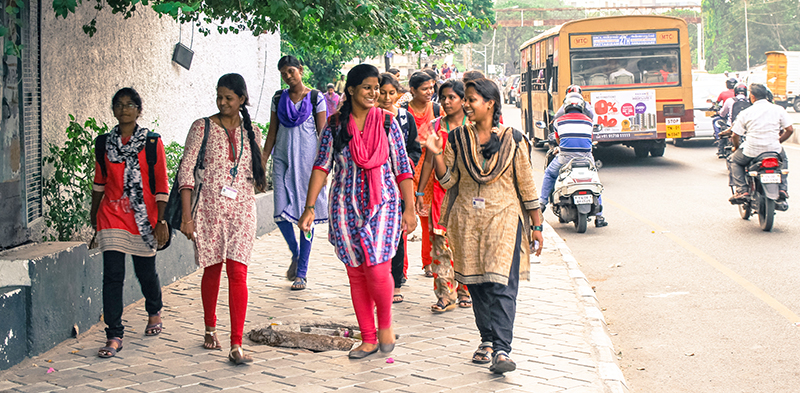In an article dated 26th July 2018, The Financial Express reported that the Minister of State (Delhi) for Urban Development, Mr. Hardeep Singh Puri introduced 10 new cities into the fold of ‘Smart Cities’ Mission led by Narendra Modi’s Bhartiya Janata Party. Mr. Puri is confident that the 10 new cities will be ‘Smart’ in the next five years because these cities do not have existing vast urban structures. Unlike the Indian metros, the development in these cities will not be done in retrospect. This will speed up the infrastructural development. The Financial Express article reported that the selection of these cities was undertaken by a democratic voting mechanism in which 2.5 million citizens casted their vote on which city should be chosen for development.


The article reported that a budget of Rs.500 crore will be spent on each of the 100 cities for the ‘Smart Cities’ Mission. The fund for the ‘Smart Cities’ Mission is being raised through the state governments (in which the cities are located), urban local municipality bodies, corporate investment (public-private partnership) and loans from other sources.
Quick Fact #1 – As per the Union Budget Plan (2018-2019), Ministry of Defense is allotted 16.6 percent of the Central Government’s share of budget and 2 percent of India’s Gross Domestic Product.
As per the website ‘smartcities.gov.in’, ‘Smart Cities’ is defined by enhanced infrastructure and services that every citizen aspires to have in their respective geographical location. The definition also factors in better standards of living, economic opportunities, health, education, better ecological balance to counter climate change, safety and security of citizens, especially women. However, these sound like tokenism to a civil society organization and a government tactic to be diplomatic when it comes to aggressive protection and upholding human rights.
Quick Fact #2 – The ‘Smart Cities’ Mission has 21 parameters against which it will be considered as having been successful in attaining the objective. None of the 21 parameters have to do with human rights protection and social well-being of the citizens, especially the vulnerable section of the society. The 21 parameters are categorized under ‘E-Governance and Citizen Service’, ‘Waste Management’, ‘Water Management’, ‘Energy Management’, ‘Urban Mobility’ and ‘Others’.
The Centre for Social Research (CSR) has been advocating ‘Safe City is a Smart City’ through gender sensitization training of the police officials. The objective of the aforementioned initiative is to bring together law enforcement agencies and those local community stakeholders who influence gender and human rights’ implementation. Not only the initiative sensitizes police officials but also creates a community awareness of networking with implementers of law.
Quick Fact #3 – ‘Nirbhaya’ fund was announced by the Government in the year 2013 and Rs.100 crore was assigned for enhancing safety mechanisms for women in India. In the year 2014, another Rs.1000 crore was assigned. Since the year 2016, Rs.550 crore is assigned every year for women. The funds are neither utilized well nor are they used to the optimum. Centre for Social Research has raised this issue in many articles about mismanagement of funds.
Dr. Ranjana Kumari, Director of Centre for Social Research was a panelist at the recent 4th Smart Cities India Expo, hosted in New Delhi by the Ministry of Housing and Urban Affairs, in association with other ministries of the Government of India. As a panelist Dr. Kumari spoke on enhancing humanity in a city in order for it to be called a Smart City, “The need for humane city as a pre-requisite to safe and smart city is felt owing to the high numbers of crimes against women in the country. In the year 2016, the National Crime Records reported in 88008 instances of kidnapping and abduction, 38947 instances of rape and 5729 instances of attempt to Commit Rape. It is important to note that the NCRB is a reservoir of recorded crimes. Many crimes in India are under-reported and unreported.”
“The day a woman can walk freely on the roads at night, that day we can say that India has achieved independence” – Mahatma Gandhi




